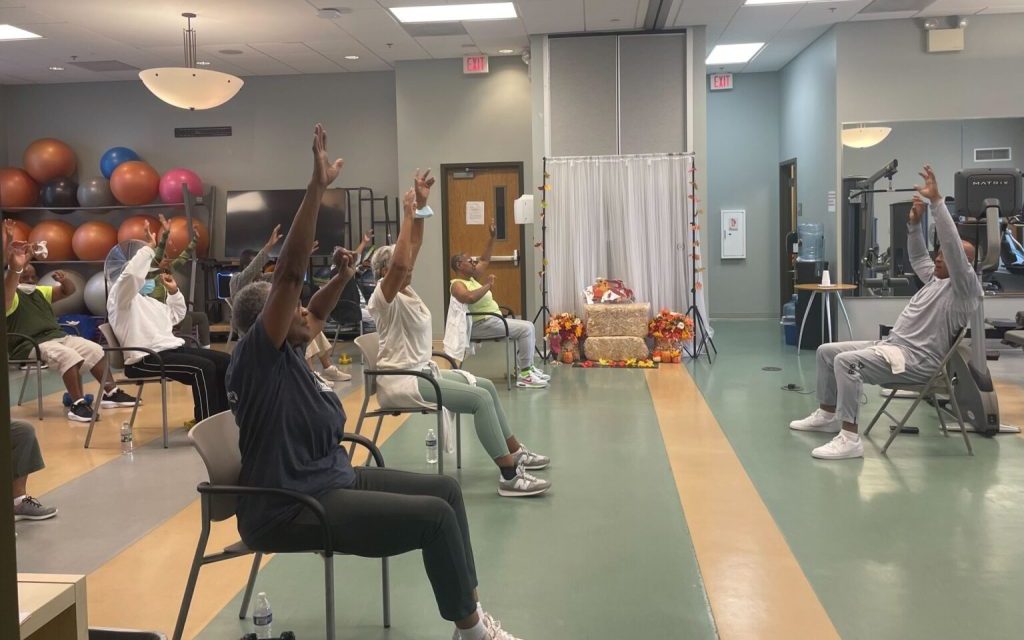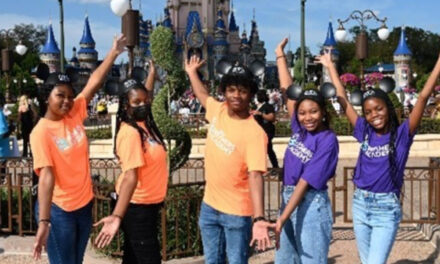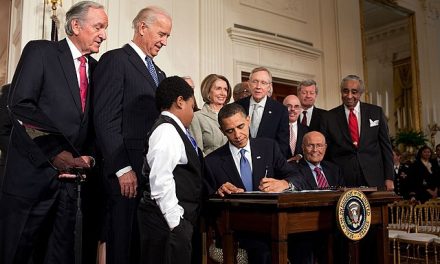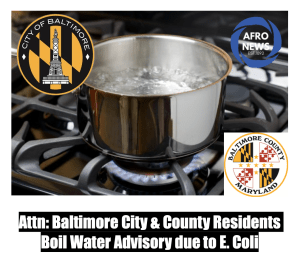
By Rachel Bunch
Howard University News Service
The Bernice Fonteneau Senior Wellness Center on Georgia Avenue, is struggling to expand their health, fitness and transportation programs due to underfunding from the Department of Aging and Community Living (DACL) — despite their members advocating for more.
The Fonteneau and Hattie Holmes Senior Wellness Centers in D.C. are managed by Mary’s Center, a federally qualified health center based in D.C. and Maryland, providing medical, dental and mental health services along with social services and educational programs. Multiple senior centers in the U.S. are managed by community-based organizations. The DACL awards grants to the organization to use to manage the centers.
“We’re absolutely 100 percent underfunded. We received our budget mark for this year and it was yet again a flat budget–everything cost more,” said Michelle Singleton, director of the center.
Singleton said the center was given around $400,000 from the DACL which they use for salaries and program operations but to meet their daily needs, she estimates a 25 percent increase in budgetary allocation would be needed to cover more day-to-day needs including transportation funds and building maintenance.
“We had transportation that was available from door-to-door [before the pandemic],” she said. “We’ve been provided with some funding –minimal funding that wouldn’t necessarily support day-to-day or door-to-door transportation and so we’ve had to opt to use it for social recreation. We use that to provide transportation to and from social recreational activities.”
During the 2023-2024 Fiscal Budget Hearing — Charon Wood Hines, DACL Director — reported that Mayor Bowser allocated a $1 million investment in the Connector Card program. The Connector Card gives seniors, over the age of 60, $100 a month to use transportation services across the city.
The center provides D.C. residents over the age of 60 with workout, nutrition and art and crafts classes – and has been doing so since 2011. Members also get full access to the facility’s gym during open hours.
Maple Poteat, 84, a 12-year member of the center said she lives alone and is long retired. The center gives her something to do and has taught her safety practices to follow at home.
“Most of the time I come for exercise. We do a lot of things. It’s nice. We go to the movies. We go to restaurants to eat. We go to the park to walk. It’s very active [and it] helped me walk better,” she said. “We had a falling prevention class where I learned ways to get up because I live by myself. It’s wonderful.”
Poteat found the center by calling ‘311,’ a toll free number that residents can call to request city services and get information about available resources.
Local fitness instructor, Runelle Gilliem said it is important to encourage seniors to stay active and for health programs to be provided.
“A lot of people …see retirement as a time to stop doing everything. When you retire you’re supposed to focus on yourself. A lot of them don’t know that, so you have to encourage them, ” Gilliem said.
The D.C. government offers several initiatives surrounding senior health.
In 2018, Mayor Muriel Bowser adopted Age-Friendly DC, an initiative to provide easier healthcare access and more safe spaces for seniors to be active. The framework for the initiative was developed by the World Health Organization Global Network for Age-Friendly cities and communities.
“Age-Friendly DC is a plan that we can use to measure success,” said Brianne Nadeau, councilmember for Ward 1.
Members of the Fonteneau center said they are making it a goal to speak with council members like Nadeau about issues that are important to them.
Singleton said their members testified in front of At-Large Member of the Council of D.C. Anita Bonds, who oversees the budget for the DACL. Councilmember Nadeau also attends workout classes at the center.
“We’ll bend her ear about some of the things that we’d like to see happen. She’ll come and she’s done exercise classes with the seniors and try to connect with them just to make herself available to them,” she said.
Nadeau said it is important that she is able to speak with the seniors in an informal setting.
“I like to go to actually interact with seniors. I enjoy participating in the programs with them and being available to them if they have anything that they need in the city. It’s just a good opportunity to be with them in a more informal setting,” Nadeau said.
In the 2024-2025 DACL Fiscal Year Budget Oversight Hearing, Hines said even though this budget season is particularly difficult, she is thanking seniors for sticking beside them.
“There’s always an argument to be made that the senior wellness centers could use more funds on an ongoing basis rather than one time grants and enhancements,” Nadeau said. “It’s an ongoing challenge and this year was a particularly tight budget year because a lot of the federal funds we received from covid and post-covid went away.”
For now, Singleton said the center is using money they get from donations and other grants they apply for to fill in the gaps the budget doesn’t support and promote.
Poteat said she plans to continue coming back because the community center gives her and fellow members a chance to learn about eating better and socialize with new people.
“It helps [us] eat better, be healthy [and] love one another,” she said.
The post Shortage of funding affecting senior care resources in Ward 1 appeared first on AFRO American Newspapers.











